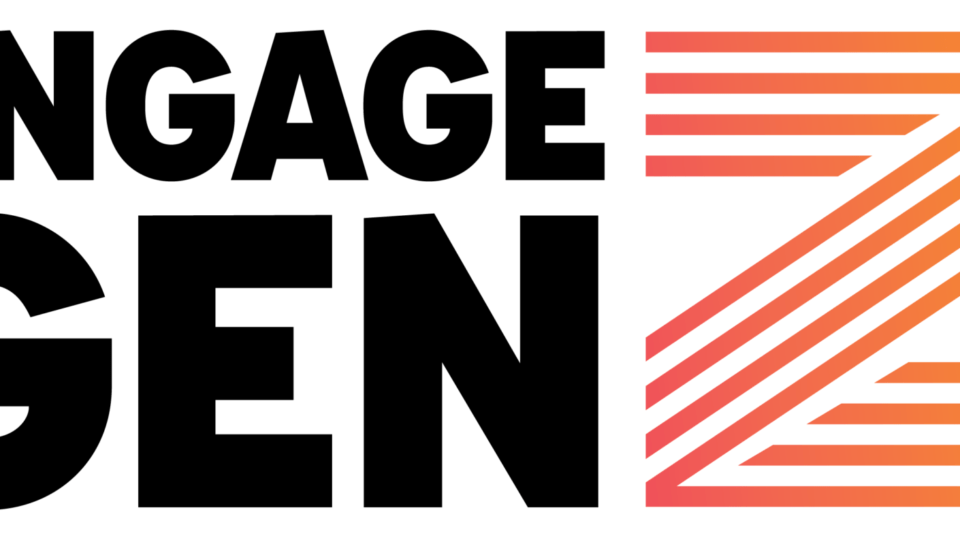
No doubt, you have heard the buzz: Generation Z is on the rise. As a Gen X native, relating to this tech-savvy, funny, socially active, globally aware generation provides an exhilarating experience and a very tangible challenge. As my life is dedicated to student camp ministry, reaching this post-Christian, spiritually connected, anti-religious, morally relative generation vexes the soul. I love Generation Z. I am eager to do my part to reach them with the gospel of Jesus Christ. I am even more eager to send them out to love a lost and dying world. While there are some significant challenges to them believing the gospel of Jesus, they are perhaps better equipped to reach the world for Christ than any previous generation.
Over the next couple of months, we are going to release short articles about Generation Z. Our desire is to give you an overview of what makes this generation tick (ahem…TikTok) and to equip you with resources that can help you reach them, whether you are a youth pastor, parent, teacher, or mentor. Let’s get started.
Who is Generation Z?
According to Barna research, Generation Z comprises anyone born between 1995 and 2015. They represent 40% of all consumers and are the primary driving force of American culture. They have always known a world marked by the 2007 global recession and the September 11 Twin Tower attacks. They are at home with diversity, Wi-fi, Harry Potter, social media, and gender fluidity.
As we have learned about Generation Z, we have realized that there are some unique challenges and some tremendous opportunities. In this first post, we will mention three challenges. In coming posts, we will address these challenges, dive into them, and suggest ways these challenges are actually opportunities. At the end, we will link to some key resources you need to read if you want to engage this generation in a meaningful way.
Challenge 1: Generation Z believes real security is a myth
Generation Z’s childhood is marked by 9/11, the 2007 economic recession, and a world continually at war. As a result, they share a collective anxiety that the world is broken and their future is unstable. They no longer look to family or religion for stability, but instead to their professional and educational achievement. As teen-climate-activist Greta Thunberg embodies, this generation cherishes “influencer” status and doing, believing that they have to take charge and fix the broken world before older generations ruin it for the younger generations.
Challenge 2: Generation Z are screenagers
Over 50% of teens report engaging screen media four-plus hours, with just as many admitting that they are addicted to their phones. TikTok has the monopoly on teens attention. Teens eschew the rants of Facebook and the curated photos of Instagram in favor of the raw humor of TikTok videos. Despite the proliferation of digital connections, rates of reported teen loneliness, depression, and suicide are skyrocketing. Teens are lonelier than ever because their collective anxiety (above) forces them to see social media as a place to build their personal brand, secure their personal future, procure more likes than their classmates, and project a curated happiness that will make them “visible” (successful) or leave them suffering the fate of “invisible” (failure).
Challenge 3: Generation Z are post-Christian
35% identify as atheist, agnostic, or non-religious while only 9% identify as engaged believers. This matches the rise in American society of the “spiritual, but not religious” or “nones” segment. The bridge between culture and Christianity has collapsed. Further, 37% do not even know if it is possible to know for sure if God is real. In other words, they are convinced that truth is more about “how you feel” than “what is fact.” They trust the natural sciences to give them fact and see religion as a farce. This is because they are confused about the relationship between truth and science.
Challenges or Opportunities?
This is just the tip of the iceberg. Gender fluidity, biblical illiteracy, victim mentality, celebration of tolerance, and the (very healthy) embrace of diversity are other challenges with this generation. Yet, all of these challenges present key gospel opportunities. As with every generation, this generation does not need us to re-invent the wheel. They need safe spaces to discuss the timeless truth of God’s Word, safe relationships to learn what it looks like to be a disciple of Jesus, and safe homes and churches where they can experience real community as members of God’s kingdom.
Coming Next
In coming months, we will take a deeper look at these challenges and explore how they are both strengths and opportunities to engage Generation Z with the Gospel.
Our Favorite Books About Generation Z
James Emery White, Meet Generation Z
White’s book argues that Generation Z is ushering in the seventh epoch of world history. The book provides an overview of key characteristics and gives substantive discussion on how to reach and evangelize this generation.
Dr. Twenge discusses the complicated dynamic between technology and in-real-life relationships, revealing that technology is cultivating loneliness and a false happiness that is fast becoming a nationwide epidemic for Generation Z.
Barna Group, Gen Z: The Culture, Beliefs and Motivations Shaping the Next Generation
In partnership with Chick-Fil-A’s Impact 360, this data-driven analysis confirms what White, Twenge, and others have warned. This generation is moving away from Christianity at a rapid pace. The book is filled with statistics, helpful visuals, objective analysis, and compelling interviews with youth leaders and experts around the nation.
